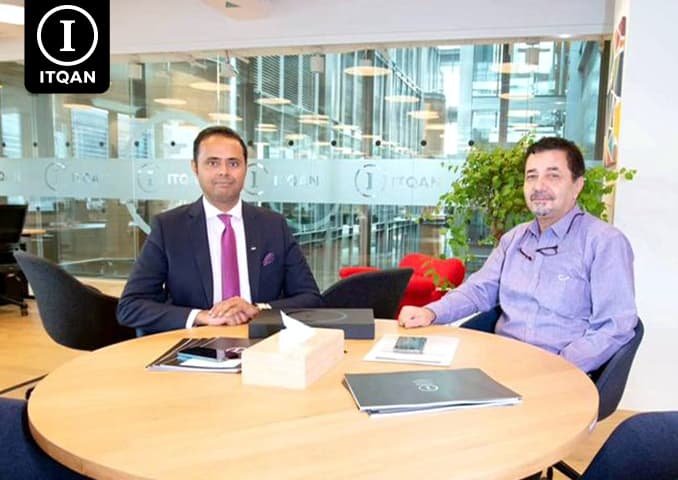Dubai, with its strategic location and thriving economy, has become a magnet for entrepreneurs and businesses from around the globe. The city’s modern infrastructure, tax-free policies, and business-friendly environment make it an attractive destination for foreign investors looking to establish a foothold in the Middle East. One of the critical steps in setting up a business in Dubai is opening a business bank account. This account not only facilitates day-to-day financial transactions but also helps in maintaining compliance with local regulations.
For foreigners, navigating the banking landscape in a new country can be daunting. The process involves understanding various legal requirements, gathering specific documents, and choosing the right banking partner that aligns with your business needs. This comprehensive guide aims to demystify the process of creating a business bank account in Dubai for foreigners. It will walk you through the essential requirements, help you compare different banks, and provide insights into the application process. By the end of this guide, you will have a clear roadmap to successfully open a business bank account in one of the world’s most dynamic cities.

جدول المحتوى
ToggleUnderstanding the Requirements
Before setting up a business bank account in Dubai as a foreigner, it’s crucial to understand the various prerequisites and legalities involved. This section will guide you through the fundamental requirements, ensuring you are well-prepared to navigate the process seamlessly.
A. Legal Business Structure
The first step in opening a business bank account in Dubai is to establish a legal business structure. Dubai offers several types of business entities, such as Limited Liability Companies (LLCs), Free Zone Companies, and Branch Offices of Foreign Companies. Each structure has its own set of advantages and regulatory requirements. For instance, Free Zone Companies benefit from 100% foreign ownership and tax exemptions but may face restrictions on doing business outside the Free Zones without a local distributor. Understanding the legal framework of your chosen business structure is vital as it impacts the type of bank account you can open and the documents required.
B. Required Documents
To open a business bank account, you will need to provide a comprehensive set of documents. These typically include:
1. Trade License: Issued by the Department of Economic Development (DED) or relevant Free Zone Authority.
2. Shareholder’s Passport Copies: Valid passports of all shareholders.
3. Memorandum and Articles of Association: Legal documents outlining the company’s structure and operational guidelines.
4. Board Resolution: A formal decision by the company’s board to open a bank account, specifying the authorized signatories.
5. Proof of Address: Utility bills or tenancy contracts to verify the company’s physical location.
6. Bank References: Letters from your existing bank to establish financial credibility.
7. Personal Information: CVs and personal bank statements of the company’s directors and shareholders.
Ensure that all documents are translated into Arabic and attested by relevant authorities if required.
C. Local Sponsor
For businesses established outside Free Zones, a local sponsor or partner is often required. This sponsor must be a UAE national who holds at least 51% of the company’s shares. While the local sponsor typically has no direct involvement in the day-to-day operations, their role is crucial for compliance with UAE laws. The local sponsor may also facilitate the banking process by providing additional credibility and local insights. If you opt for a Free Zone Company, you can bypass this requirement, but it’s essential to weigh the pros and cons of each structure carefully.
By understanding these key requirements—legal business structure, necessary documentation, and the role of a local sponsor—you’ll be better equipped to open a business bank account in Dubai efficiently. The next sections will delve into choosing the right bank and navigating the application process to ensure a smooth experience.

Choosing the Right Bank
Selecting the right bank for your business account in Dubai is a critical step that can significantly impact your company’s financial operations. The emirate boasts a wide array of banking institutions, each offering unique services tailored to different business needs. Here are some key factors to consider when choosing the right bank for your business:
A. Comparing Bank Services
Dubai’s banking sector is highly competitive, with numerous banks offering a variety of services to attract business clients. When evaluating banks, consider the following services:
1. Account Types: Different banks offer various types of business accounts, such as current accounts, savings accounts, and fixed deposit accounts. Assess your business needs to determine which account type is most suitable.
2. Online Banking: In today’s digital age, robust online banking facilities are essential. Ensure that the bank provides a user-friendly online platform that allows for easy management of transactions, payments, and account monitoring.
3. Customer Support: Reliable customer service can make a significant difference in your banking experience. Look for banks that offer 24/7 support and have dedicated relationship managers for business accounts.
4. Additional Services: Some banks provide value-added services like payroll management, trade finance, and merchant services. Determine if these additional services align with your business needs.
B. Fee Structures
Understanding the fee structures of different banks is crucial to avoid unexpected costs. Banks in Dubai may charge various fees, including:
1. Account Maintenance Fees: Some banks charge monthly or annual maintenance fees. Compare these fees to find a bank that offers the best value for your business.
2. Transaction Fees: Transaction fees can accumulate quickly, especially if your business conducts numerous transactions. Look for banks that offer low or no transaction fees to minimize costs.
3. ATM and Cash Deposit Fees: If your business frequently handles cash, consider the fees associated with ATM withdrawals and cash deposits.
4. Foreign Exchange Fees: For businesses dealing with international clients or suppliers, favorable foreign exchange rates and lower fees can result in significant savings.
C. Reputation and Reviews
A bank’s reputation and customer reviews can provide valuable insights into its reliability and service quality. Take the following steps to assess a bank’s reputation:
1. Research: Conduct thorough research on the banks you are considering. Look for industry awards, recognitions, and the bank’s history in the market.
2. Customer Reviews: Read online reviews and testimonials from other business owners who have experience with the bank. Pay attention to feedback on customer service, ease of account management, and overall satisfaction.
3. Professional Recommendations: Consult with financial advisors or business consultants who have experience in the Dubai banking sector. Their recommendations can help you make an informed decision.
4. Networking: Engage with other business owners in Dubai to get their firsthand experiences and recommendations regarding different banks.
Choosing the right bank for your business account in Dubai requires careful consideration of various factors. By comparing the services offered, understanding the fee structures, and assessing the bank’s reputation, you can make a well-informed decision that aligns with your business needs and goals.
Application Process
Once you have a clear understanding of the requirements and have chosen the right bank for your business needs, the next crucial step is the application process. This section will guide you through each stage to ensure a smooth and efficient experience.
A. Filling Out the Application
The first step in the application process is to fill out the necessary forms provided by the bank. Most banks in Dubai offer both online and in-branch application options. Here’s what you need to do:
1. Gather Your Information: Before starting the application, make sure you have all the necessary information at hand. This includes your business details, personal identification, and contact information.
2. Choose the Right Account Type: Banks typically offer different types of business accounts. Select the one that best suits your business needs, whether it’s a current account, savings account, or a specialized business account.
3. Complete the Form: Carefully fill out the application form. Double-check all fields to ensure accuracy. Mistakes or incomplete information can lead to delays.
4. Digital vs. Paper Application: If the bank offers an online application, this can save you time. Follow the instructions on the bank’s website, and make sure you receive a confirmation email after submission. If you prefer a paper application, visit the bank branch and ask for assistance if needed.
B. Submitting Documents
After completing the application form, the next step is to submit the required documents. These documents substantiate your business’s legitimacy and your eligibility to open a bank account in Dubai.
1. Document Checklist: Ensure you have all the necessary documents, which typically include:
- A valid passport and visa copies
- Emirates ID (if applicable)
- Proof of business registration (trade license)
- Memorandum and Articles of Association
- Proof of physical business address
- Personal bank statements (for the past 6 months)
- A No Objection Certificate (NOC) from your local sponsor (if applicable)
2. Certified Copies: Some banks may require certified copies of these documents. Certification can often be done by a notary public or the issuing authority.
3. Document Submission: Submit your documents along with your application form. If you’re applying online, you will likely need to upload digital copies. For in-branch applications, submit physical copies to the bank representative.
4. Follow-Up: After submitting your documents, confirm receipt with the bank. Some banks provide a tracking number or reference ID to check the status of your application.
C. Approval Timeline
The approval timeline for opening a business bank account in Dubai can vary based on several factors, including the bank’s internal processes and the completeness of your application.
1. Initial Review: Once submitted, your application will go through an initial review. This typically takes a few business days. During this period, the bank may contact you for additional information or clarification.
2. Compliance Checks: Banks in Dubai conduct stringent compliance checks to meet regulatory requirements. This includes verifying your documents and conducting background checks. This phase can take anywhere from a few days to a couple of weeks.
3. Final Approval: After passing the compliance checks, your application will move to the final approval stage. You will receive a notification from the bank once your account is approved. This can take another few days.
4. Account Activation: Once approved, you may need to make an initial deposit to activate your account. After activation, you will receive your account details, including your account number and online banking credentials.
5. Expect Delays: Be prepared for possible delays. Factors such as incomplete documentation, high application volumes, and additional compliance requirements can extend the approval timeline. Staying in regular contact with your bank can help expedite the process.
Opening a business bank account in Dubai as a foreigner involves several steps, but by carefully following the application process, you can ensure a timely and successful outcome.
Conclusion
Establishing a business bank account in Dubai as a foreigner involves a series of careful steps, but with the right preparation and knowledge, it can be a smooth and efficient process. The journey begins with understanding the legal business structures available and gathering the necessary documentation, including securing a local sponsor if required. This foundational step ensures that your business complies with Dubai’s regulatory environment and sets the stage for a successful banking relationship.
Choosing the right bank is equally crucial. By comparing bank services, fee structures, and reputations, you can select a financial institution that aligns with your business needs and goals. The ideal bank will offer the support and resources necessary to facilitate your business operations and growth.
The application process, although detailed, is straightforward if you follow the bank’s guidelines meticulously. Filling out the application accurately, submitting all required documents, and understanding the approval timeline will help expedite the process, allowing you to focus on your business activities sooner.
In conclusion, while opening a business bank account in Dubai may seem daunting for foreigners, thorough preparation and informed decision-making can simplify the process. By adhering to local requirements, selecting the appropriate bank, and diligently completing the application procedures, you can establish a solid financial foundation for your business in one of the world’s most dynamic commercial hubs.
















